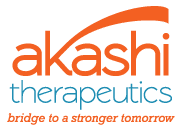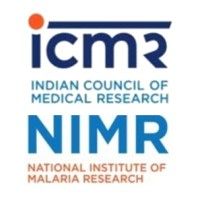Request Demo
Last update 14 Aug 2025
Halofuginone Hydrobromide
Last update 14 Aug 2025
Overview
Basic Info
Drug Type Small molecule drug |
Synonyms (+/-)-trans-7-bromo-6-chloro-3-(3-(3-hydroxy-2-piperidyl)-acetonyl)-4(3H)-quinazolinone, Halofuginone, Halofuginone hydrobromide (USAN) + [6] |
Target |
Action inhibitors |
Mechanism Collagen inhibitors, EPRS inhibitors(Aminoacyl-tRNA synthetase inhibitors), Angiogenesis inhibitors |
Active Indication |
Inactive Indication |
Originator Organization |
License Organization |
Drug Highest PhasePreclinical |
First Approval Date- |
RegulationOrphan Drug (United States) |
Login to view timeline
Structure/Sequence
Molecular FormulaC16H18Br2ClN3O3 |
InChIKeySJUWEPZBTXEUMU-AJYMSAGVSA-N |
CAS Registry64924-67-0 |
Related
5
Clinical Trials associated with Halofuginone HydrobromideNCT02525302
HT-100 Long-term Safety and Pharmacodynamics in Patients With DMD Who Have Completed Protocols HALO-DMD-01 and HALO-DMD-02
This study, HALO-DMD-03, is a follow-on study to HALO-DMD-01 and HALO-DMD-02, and allows continued open-label access to HT-100 for subjects who have completed these studies. HALO-DMD-03 will provide safety and strength and function data on continuous long-term dosing. Data from this study will be used to inform the safety, tolerability, and dose selection for a future trial of HT-100 in boys with Duchenne Muscular Dystrophy (DMD).
Start Date01 May 2015 |
Sponsor / Collaborator |
NCT01978366
An Open Label Extension Study of HT-100 in Patients With Duchenne Muscular Dystrophy Who Have Completed Protocol HALO-DMD-01
This study is designed to provide 6-months continuous dosing with the study medication, called HT-100, on participants who successfully completed the predecessor study (HALO-DMD-01). The main purpose of this study is to assess chronic safety, tolerability, pharmacodynamic activity (testing the drug's effect on DMD) and population pharmacokinetics (measuring how much drug is in the bloodstream) in participants with a broad spectrum of Duchenne muscular dystrophy (DMD).
Start Date01 Oct 2013 |
Sponsor / Collaborator |
NCT01847573
A Phase 1b Open Label, Single and Multiple Ascending Dose Study to Evaluate the Safety, Tolerability, and Pharmacokinetics of HT-100 in Patients With Duchenne Muscular Dystrophy
The main purpose of this study is to test the safety and tolerability of different, increasing doses of an experimental medication called HT-100 in boys and young men with Duchenne muscular dystrophy (DMD). The study medication, HT-100, is a medicine that may help promote healthy muscle regeneration, diminish inflammation and the resulting damage to muscle, and decrease the scar tissue that forms in the muscles of children with DMD. In this study, pharmacokinetic sampling, or measurements of the amount of HT-100 in the bloodstream will also be taken.
Start Date01 May 2013 |
Sponsor / Collaborator |
100 Clinical Results associated with Halofuginone Hydrobromide
Login to view more data
100 Translational Medicine associated with Halofuginone Hydrobromide
Login to view more data
100 Patents (Medical) associated with Halofuginone Hydrobromide
Login to view more data
488
Literatures (Medical) associated with Halofuginone Hydrobromide01 Aug 2025·Photodiagnosis and Photodynamic Therapy
Corrigendum to “Halofuginone enhances the anti-tumor effect of ALA-PDT by suppressing NRF2 signaling in cSCC” [Photodiagnosis and Photodynamic Therapy. 37 (2022) 102572]
Author: Huang, Jianhua ; Zeng, Qingyu ; Wu, Minfeng ; Wang, Hongwei ; Wang, Xiuli ; Lv, Ting
01 Aug 2025·PREVENTIVE VETERINARY MEDICINE
Antimicrobial drugs used in the prevention and control of protozoal and bacterial calf diarrhea: A scoping review
Article
Author: Bernal-Córdoba, Christian ; Alonso-López, Yael ; Minjee-Lee, Caroline ; Fausak, Erik D ; Pérez-Solano, Diana ; Silva-Del-Río, Noelia ; Branco-Lopes, Rúbia ; V Pereira, Richard
This scoping review examined the scientific literature on antimicrobial use (AMU) for preventing and controlling calf diarrhea. Secondary aims included describing health assessment methods and exploring the feasibility of meta-analyses to assess antimicrobial drug (AMs) efficacy. Following a registered protocol, four electronic databases were searched (initial search 2019; last update 2023). Eligibility criteria required controlled trials evaluating AMU for diarrhea prevention and control in calves ≤ 6 months, with efficacy assessed through health outcomes and/or fecal pathogen shedding. The search yielded 4486 references. After deduplication, two reviewers screened titles (n = 3259), abstracts (n = 341), and full texts (n = 106), resulting in the inclusion of 43 articles encompassing 62 trials. Pathogens associated with diarrhea included Eimeria spp. (41.9 %), Cryptosporidium spp. (40.3 %), Salmonella spp. (8.1 %), and Escherichia coli (3.2 %). High variability and frequent incomplete reporting of trial methodologies were observed. The most frequently assessed AMs were diclazuril, toltrazuril, and lasalocid for Eimeria, and halofuginone, chlortetracycline, and oxytetracycline for Cryptosporidium, Salmonella, and E. coli, respectively. Fecal consistency (93.5 %) and stool blood (48.4 %) were the most commonly evaluated fecal traits, while microscopy-based quantitative (50 %) and semi-quantitative (48.4 %) tests were frequently used for fecal pathogen shedding. Results suggest that meta-analyses could be performed to evaluate AM efficacy for diarrhea associated with Cryptosporidium and Eimeria. Future research should assess the efficacy of AMs approved by regulatory agencies, refine diagnostic methods for evaluating diarrhea etiology, validate health assessment techniques, and compare the efficacy of management practices in preventing and controlling calf diarrhea.
30 Jul 2025·JOURNAL OF INFECTIOUS DISEASES
Chemical Targeting of Prolyl-tRNA Synthetase Stalls Ovarian Development and Kills Malaria Vectors
Article
Author: Manickam, Yogavel ; Goel, Jyoti Chhibber ; Gupta, Swati ; Goswami, Ritu ; Sharma, Amit ; Shrinivasa, B M
Abstract:
Background:
Along with rising resistance to antimalarials, the emergence of insecticide resistance in Anopheles mosquito species remains a serious concern. Here, we reveal 2 potent compounds that show larvicidal and endectocidal activity against malaria vectors Anopheles culicifacies and Anopheles stephensi.
Methods:
We investigated the larvicidal activity of 2 inhibitors against III instar larvae of A culicifacies. The survival and fertility of adult female A stephensi mosquitoes were also assessed with inhibitors. Additionally, we purified recombinant prolyl-tRNA synthetase of A culicifacies and performed enzyme-based assays and structural studies with the 2 inhibitors.
Results:
Our study reveals that the A culicifacies prolyl-tRNA synthetase (AcProRS) is potently inhibited by halofuginone (HFG) and an adenosine triphosphate mimetic (L95). The evaluation of larvicidal activity of HFG against A culicifacies III instar larvae showed a dose-dependent increase in mortality. In adult female A stephensi mosquitoes, ingestion of HFG via artificial blood feeding resulted in impaired ovary development, reduced egg laying, and decreased overall survival. The potent enzymatic inhibition of AcProRS thus likely drives the killing of larvae. The cocrystal structure of AcProRS with inhibitors provides a structural basis for improving their potency as future larvicides.
Conclusions:
Our data suggest the potential for repositioning HFG and pyrrolidine-based adenosine triphosphate mimetic (L95) as larvicides. Targeting the vector-encoded aminoacyl-tRNA synthetases provides a new focus for developing effective agents that can control multiple mosquito-borne infectious diseases such as malaria and dengue.
8
News (Medical) associated with Halofuginone Hydrobromide26 Apr 2016
April 26, 2016
By
Mark Terry
, BioSpace.com Breaking News Staff
Yesterday, after a 12-hour series of discussions and presentations, the
U.S. Food and Drug Administration (FDA)
‘s Peripheral and Central Nervous System Advisory Committee (PCNSC)
voted
6-7 against a recommendation for Cambridge, Mass.-based
Sarepta Therapeutics
’s eteplirsen for Duchenne Muscular Dystrophy (DMD). Now the FDA will make a final decision on May 26 whether to approve the drug. The FDA typically follows the recommendations of its advisory panels, but not always, and the political pressure in this particular case is extreme, and has the potential to seriously affect where the scientific bar is placed for drug approvals.
Originally the FDA was to
review
Sarepta’s New Drug Application (NDA) for eteplirsen for DMD on Jan. 21. It was postponed until yesterday because of an impending snowstorm on the east coast.
DMD is a muscle wasting disease caused by mutations in the dystrophin gene. Dystrophin is a protein that plays a central role in muscle fiber. The disease is progressive and typically causes death in the mid- to late-twenties. It mostly affects boys, about 1 in every 3,500 to 5,000 male children.
In the lead-up to yesterday’s hearing,
advocacy pressure
ratcheted upward. In March, 36 experts in DMD signed a letter to the FDA urging the agency to approve the drug. It was written by two co-directors of the
Center for Duchenne Muscular Dystrophy
at
UCLA
,
M. Carrie Miceli
and
Stanley Nelson
. In February, 109 members of Congress sent a letter to the FDA urging it to accelerate approval of a DMD drug—any DMD drug, apparently.
The primary issue the FDA has with the drug is the size of the study and lack of placebo controls. The study only involved 12 boys, and the data on two of them, who did not respond to the drug, is essentially being disregarded by Sarepta, claiming that they weren’t expected to respond to the drug because they are at a later stage of the disease. There were no real placebo controls to compare the results to. Arguing that it was “unethical” to withhold a potentially effective drug from the boys, the company utilized historical data from European studies.
FDA clinical team leader
Ronald Farkas
told the
advisory committee
that the FDA “consistently and strongly encouraged” placebo-controlled trials for the drug and “expressed strong doubts regarding the interpretability of comparison.”
Underscoring the political aspect of the meeting, the first public speaker was Pennsylvania Representative
Mike Fitzpatrick
, a Republican, noting the 100 or so lawmakers that had signed the letter to the FDA. There were 52 public commentators at the hearing, including several boys with DMD and their parents. Of them, 51 urged approval.
One of the boys was
Billy Ellsworth
, who testified from his wheelchair, saying, “I’m going to beat this bloody disease but I need your help. FDA, please don’t let me die early.”
The public speakers lasted about three hours, with the remaining nine hours spent on primarily technical discussions.
Eric Bastings
, an FDA official, told the panel there was “no apparent correlation between muscle levels of the protein dystrophin and a change” in how the boys did on a walk test, which is a primary way of evaluating the progression of the disease.
The ultimate 7 to 6 vote pretty much
indicates
that seven of the panel members didn’t believe the trial showed the drug worked. It’s important to note that the vote doesn’t mean the drug doesn’t work—it means that the clinical trials have not yet proven that it works. There were additional votes. Seven of the panelists voted that the drug was not effective. Three voted that it was, and three abstained from voting.
“The data wasn’t there to approve on the basis of one poorly controlled trial,” said
Caleb Alexander
, a researcher at the
Johns Hopkins Bloomberg School of Public Health
and the panels chair.
Although it’s up in the air for the final vote in May, at least one analyst,
Steve Brozak
, with
WBB Securities
, expects it will. “Everyone was visibly moved by the audience and their testimony, and that is not going to go unnoticed. It’s not just political pressure. It’s advocacy pressure of the sort that I’ve not seen since the days of HIV and AIDS. And that can make the difference here.”
Advocates for the drug are
arguing
that since the drug is safe, why not make it available to the DMD patients? What do they have to lose?
“The worst thing you can do is deny access to a drug and then find out it works—too late, after we have lost a generation of boys,”
Debra Miller
, chief executive officer of
CureDuchenne
said to the panel.
That’s an arguable point. It would definitely be tragic if that were the case, but equally and perhaps more tragic if, because of the small size of the drug, there were as-yet unseen adverse side effects, or the drug was essentially no better than a placebo. There would likely also be significant litigation exposure for Sarepta and physicians if that did turn out to be the case.
The FDA is charged with setting a scientific bar for the safety and efficacy of approved drugs, which in some cases can be very difficult to define. Situations like this one are enormously challenging for the scientists and regulators involved, as well as for the patients, families of patients and patient advocates.
In his opening remarks at the meeting,
Billy Dunn
, the director of the FDA’s division of neurology products, noted that the FDA was legally required to approve drugs only if “substantial evidence” of their effectiveness was found. “These words are not vague words to be defined according to whim or fashion. Anecdote and emotion do not change the data with which we are confronted, no matter the attendance.”
Earlier this year, the FDA
turned down
San Rafael, Calif.-based
BioMarin Pharmaceutical
’s application for Kyndrisa for DMD. And in January, Cambridge, Mass.-based
Akashi Therapeutics
halted
its DMD trial for HT-100 because one of the patients developed serious, life-threatening health problems.
France’s
Anagenesis Biotherapies
is
opening
a U.S. facility in Boston and will work on a DMD drug.
NDA
20 Apr 2016
April 19, 2016
By
Mark Terry
, BioSpace.com Breaking News Staff
Anagenesis Biotherapies
, headquartered in Strasbourg, France,
announced
yesterday that it was opening a U.S. subsidiary in Boston, Mass. The offices will be located at the
Cambridge Innovation Center
’s 50 Milk Street facility and will focus on Duchenne Muscular Dystrophy (DMD).
“We are very excited to become part of this exceptional biotechnology and academic cluster,” said
Jean-Yves Bonnefoy
, president and chief executive officer of Anagenesis, in a statement. “Massachusetts is the ideal location for us to advance our DMD cell therapy product candidate, which has unique advantages over other therapies currently under development. Indeed, the local strength in stem cell research will greatly benefit the cell therapy focus of our U.S. subsidiary and also will help us expand our product candidate portfolio to brown fat or cartilage-based therapies to address other diseases druggable by our technology.”
DMD is a muscle wasting disease caused by mutations in the dystrophin gene. The disease is progressive and generally causes death in early childhood. Complications include serious heart or respiratory-related problems. It mostly affects boys, about 1 in every 3,500 to 5,000 male children.
It hasn’t been a particularly
good year
for companies focused on DMD. On Jan. 25, Cambridge, Mass.-based
Akashi Therapeutics
halted its DMD trial for HT-100 after one of its patients developed serious, life-threatening health problems. San Rafael, Calif.-based
BioMarin Pharmaceutical
’s application for its DMD drug Kyndrisa (drisapersen) was turned down by the
U.S. Food and Drug Administration (FDA)
on Jan. 15, with the FDA arguing the drug didn’t show enough benefit.
Cambridge, Mass.-based
Sarepta Therapeutics
has had a more complicated road for its DMD drug eteplirsen. Originally the FDA’s Peripheral and Central Nervous System Advisory Committee was scheduled on Jan. 21 to make a decision on the company’s New Drug Application (NDA). But, because of an impending snowstorm on the east coast, the meeting was postponed until April 25.
Last month, 36 DMD experts
signed a letter
to the FDA urging it to approve eteplirsen. Penned by two co-directors of the Center for Duchenne Muscular Dystrophy at
UCLA
,
M. Carrie Miceli
and
Stanley Nelson
, the letter noted the difficulty of conducting trials on DMD patients, saying, “These three-year data alone are clearly supportive of accelerated approval, however the new four-year data regarding age at loss of ambulation now provide even more compelling data for accelerated approval based on an irreversible morbidity. … We suggest that the most scientifically robust way forward and the most ethnical choice for the Duchenne community is in the context of an accelerated approval followed by a confirmatory trial.”
In February, 109 members of Congress also sent a letter to the FDA urging it to accelerate approval of a DMD drug—any DMD drug.
Anagenesis is a private company that focuses on muscle diseases, which include DMD, as well as sarcopenia and cachexia. Anagenesis’ approach is on stem cells and reprogrammed cell-based technologies. Based on the research of
Olivier Pourquie
, Paraxial Mesoderm Multipotent Cells (P2MCs) are shared precursors of skeletal muscle, ribs, vertebra, dermis, endothelium and brown fat. Its technology platform essentially allows it to engineer stem cells to produce muscle cells, as well as other cell types.
It also utilizes high throughput and high content screening in customized in vitro assays to identify lead compounds that act on muscle progenitors for sarcopenia and cachexia, which are muscle disorders related to aging and cancer, respectively.
Cell TherapyAccelerated Approval
22 Mar 2016
March 22, 2016
By
Mark Terry
, BioSpace.com Breaking News Staff
Thirty-six experts in Duchenne Muscular Dystrophy (DMD) signed a
letter
to the
U.S. Food and Drug Administration (FDA)
urging the regulatory agency to approve eteplirsen, a drug developed by Cambridge, Mass.-based
Sarepta Therapeutics
.
Originally the FDA’s Peripheral and Central Nervous System Advisory Committee was scheduled on Jan. 21 to make a decision on the company’s New Drug Application (NDA) for eteplirsen. However, due to an impending snowstorm on the east coast, the
meeting was postponed
. It is now scheduled for April 25.
There was some initial confusion over whether the drug had been turned down. On Jan. 14, the
FDA rejected
San Rafael, Calif.-based
BioMarin Pharmaceutical Inc.
’s application for Kyndrisa (drisapersen) for DMD. The FDA argued that Kyndrisa didn’t show enough benefit. Because Sarepta’s meeting with the FDA was scheduled for the same period, some media outlets believed that the company’s drug had also been rejected, rather than a decision being postponed.
Also, on Jan. 26, Cambridge, Mass.-based
Akashi Therapeutics
announced
that its clinical trial for HT-100 in DMD has been halted because one patient developed serious, life-threatening health problems. The patient was receiving the highest dose in the HALO trial, and the company has noted that no other patients showed the same problems.
DMD is a muscle-wasting disease caused by mutations in the dystrophin gene. It is a progressive disease and generally results in death in early adulthood. Serious complications include heart or respiratory-related problems. It affects mostly boys, about 1 in every 3,5000 to 5,000 male children.
The
letter to the FDA
was written by two co-directors of the
Center for Duchenne Muscular Dystrophy
at
UCLA
,
M. Carrie Miceli
and
Stanley Nelson
. Thirty-four additional doctors and scientists who specialize in DMD research from around the globe signed the letter, which was delivered to the FDA last month, but recently posted on the UCLA website.
The letter brings up two specific issues. The first was the question of whether the patients’ disease progression on eteplirsen substantially deviated from the expected course of the disease in a sufficiently reliable manner. The second question was, did the drug show “convincing evidence of dystrophin protein induction, the proposed mechanism of action of the drug?”
Noting the difficulty of conducting trials on DMD patients, and analyzing the unique conditions involved in this trial, the authors conclude that, “These three-year data alone are clearly supportive of accelerated approval, however the new four-year data regarding age at loss of ambulation now provide even more compelling data for accelerated approval based on an irreversible morbidity.”
They further say that, “We suggest that the most scientifically robust way forward and the most ethical choice for the Duchenne community is in the context of an accelerated approval followed by a confirmatory trial.”
Sarepta popped at the news. Shares traded for $14.55 on Mar. 16 and is currently trading for $21.71.
In February, 109 members of Congress also sent a
sent a letter
to the FDA urging it to accelerate approval of a DMD drug—
any
DMD drug, apparently, because no specific drug was mentioned in the letter.
Addressed to
Janet Woodcock
, director of the FDA’s CDER, the letter said, in part, “Consistent with FDA regulations, we believe it is ‘appropriate [for the FDA] to exercise the broadest flexibility in applying the statutory standards, while preserving appropriate guarantees for safety and effectiveness’ to new therapies intended to treat persons with life-threatening and severely-debilitating illnesses. As the FDA further notes, ‘the benefits of the drug need to be evaluated in light of the severity of the disease being tested.’ As Members of Congress representing constituents battling Duchenne, we wholeheartedly agree with this viewpoint and urge the FDA to ensure this flexibility is applied in reviewing all Duchenne candidate therapies.”
Although Sarepta’s eteplirsen has shown benefits in a Phase IIb trial, the
biggest concern
over previous studies is the size of the study, which is quite small. Also, the FDA seems to be reluctant to view increased dystrophin production as a completely valid endpoint to determine the drug’s effectiveness. The FDA is requiring Sarepta to run a bigger Phase III trial to confirm efficacy. Accelerated approval, as all these forces come together, is a real possibility, potentially by late May.
Sean Williams
, writing for The Motley Fool, cautions investors to go in with their eyes fully open to the risks. “If eteplirsen is approved, it’ll likely carry a hefty specialty price tag and would go a long way to validating Sarepta’s exon-skipping drug development platform, which could treat nearly half of all exon-based DMD cases with eight developed medications. If eteplirsen fails, it could crush Sarepta shareholders’ ticket to easy money and leave the company reliant on its infectious disease portfolio.”
Phase 2NDAPhase 3Accelerated Approval
100 Deals associated with Halofuginone Hydrobromide
Login to view more data
External Link
| KEGG | Wiki | ATC | Drug Bank |
|---|---|---|---|
| D04413 | Halofuginone Hydrobromide | - |
R&D Status
10 top R&D records. to view more data
Login
| Indication | Highest Phase | Country/Location | Organization | Date |
|---|---|---|---|---|
| Muscular Dystrophy, Duchenne | Phase 2 | United States | 01 Oct 2013 | |
| Bladder Cancer | Phase 2 | Israel | - | |
| Bladder Cancer | Phase 2 | United Kingdom | - | |
| Neoplasms | Phase 2 | Belgium | - | - |
| Neoplasms | Phase 2 | Europe | - | |
| Neoplasms | Phase 2 | Netherlands | - | - |
| Scleroderma, Systemic | Phase 2 | United Kingdom | - | |
| Rheumatoid Arthritis | Preclinical | China | 08 May 2025 | |
| Malaria | Preclinical | India | 06 Mar 2025 | |
| Malaria | Preclinical | India | 06 Mar 2025 |
Login to view more data
Clinical Result
Clinical Result
Indication
Phase
Evaluation
View All Results
| Study | Phase | Population | Analyzed Enrollment | Group | Results | Evaluation | Publication Date |
|---|
No Data | |||||||
Login to view more data
Translational Medicine
Boost your research with our translational medicine data.
login
or

Deal
Boost your decision using our deal data.
login
or

Core Patent
Boost your research with our Core Patent data.
login
or

Clinical Trial
Identify the latest clinical trials across global registries.
login
or

Approval
Accelerate your research with the latest regulatory approval information.
login
or

Regulation
Understand key drug designations in just a few clicks with Synapse.
login
or

AI Agents Built for Biopharma Breakthroughs
Accelerate discovery. Empower decisions. Transform outcomes.
Get started for free today!
Accelerate Strategic R&D decision making with Synapse, PatSnap’s AI-powered Connected Innovation Intelligence Platform Built for Life Sciences Professionals.
Start your data trial now!
Synapse data is also accessible to external entities via APIs or data packages. Empower better decisions with the latest in pharmaceutical intelligence.
Bio
Bio Sequences Search & Analysis
Sign up for free
Chemical
Chemical Structures Search & Analysis
Sign up for free





